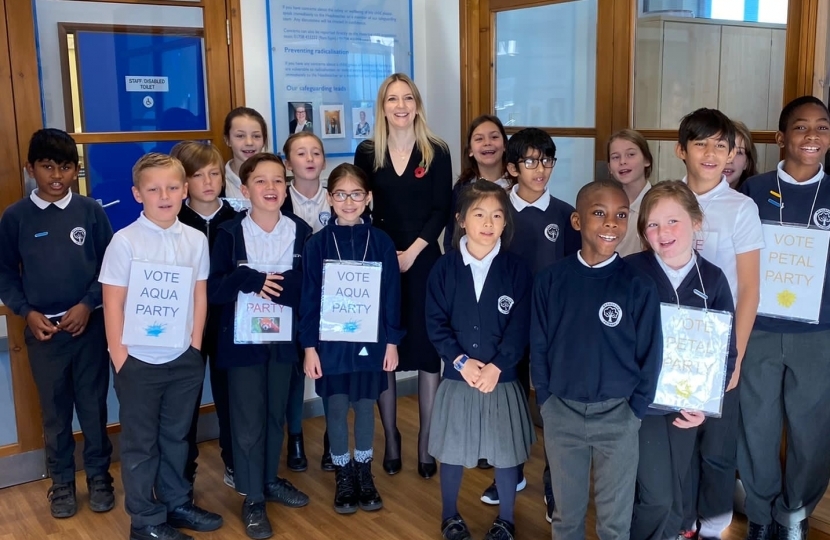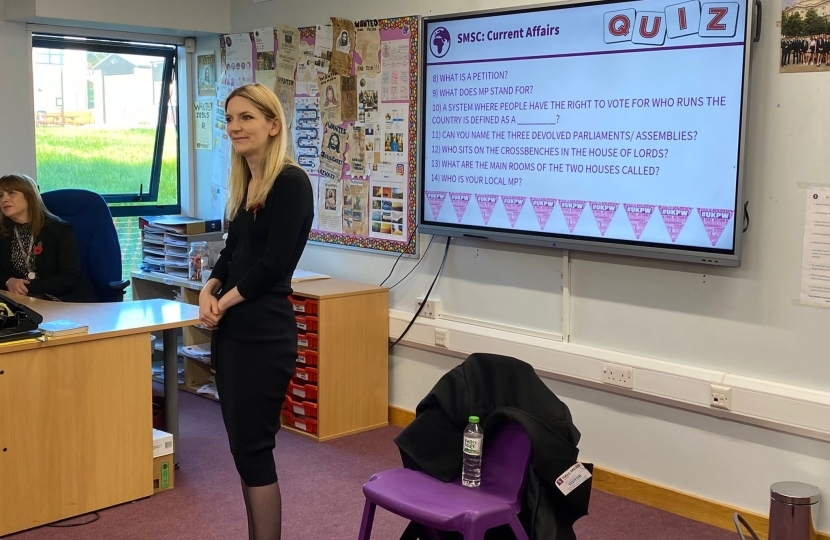It was a joy to be back in the classroom last week with visits to Hall Mead secondary school in Upminster and Broadford Primary on Harold Hill. I was there to answer students’ questions for Parliament Week but I was equally keen to learn from them about their experiences of the pandemic after months of disruption to their schooling.
One of the most heartening pieces of feedback was how glad children were to be back in the classroom. For all the benefits that technology can bring, it was clear that many found online solo learning hard and unengaging, and there were clearly many strains on teachers and working parents to juggle homeschooling with pressurised day jobs.
The visits were timely in coming a day after a parliamentary debate I responded to on the digital divide. Technology has been a huge enabler during the pandemic, keeping the economy, health and education systems functioning. However, if you are someone without access to a good phone or laptop, if you lack digital skills or if you have poor connection, there is a risk in this brave new world that you will also have fewer opportunities than someone who does.
In my new ministerial role at the Department of Digital, Culture, Media & Sport, I am leading government efforts to make sure we have great broadband and phone signal in every part of the country. We are also working with providers to maintain social tariffs so that people on low incomes can get cheap internet packages, and I will be working with ministerial colleagues in the education, skills and employment sectors to improve digital skills for people of all ages.
The acceleration of technology because of the pandemic can be a great thing, provided it does not exclude people or diminish real life experiences and services. This will be one of the big challenges for us as a government and society, and one in which we are already getting stuck in.



